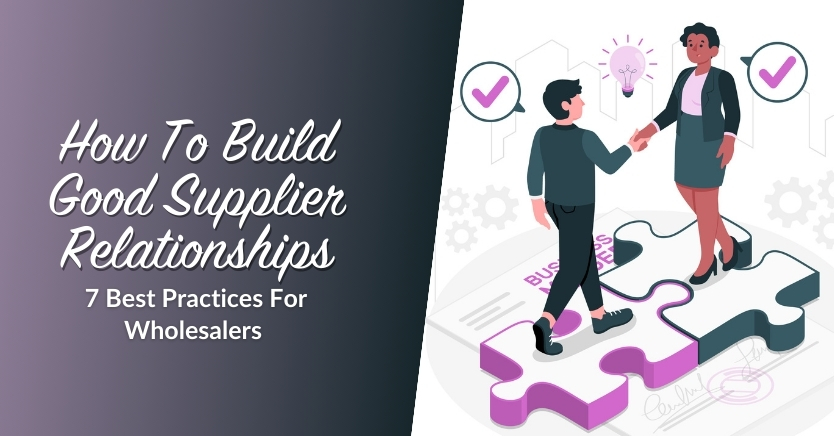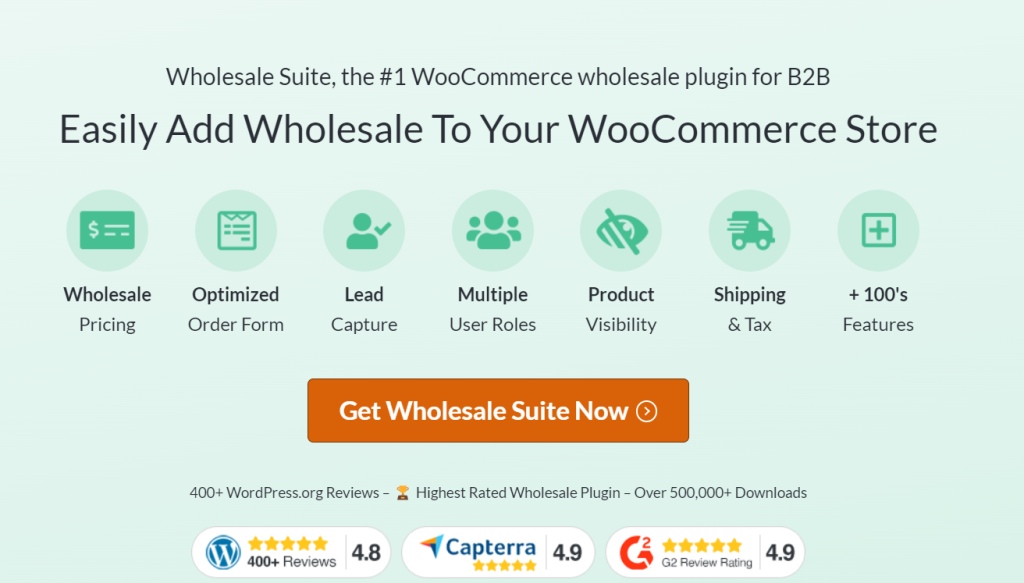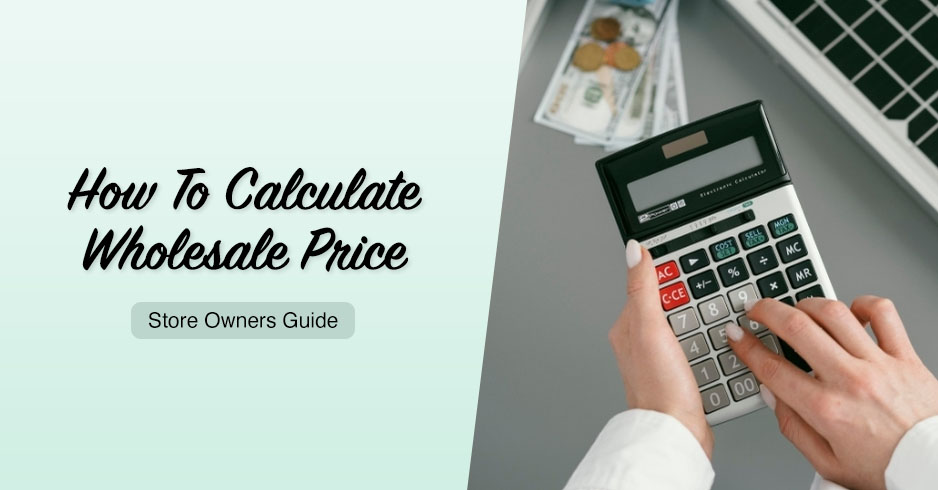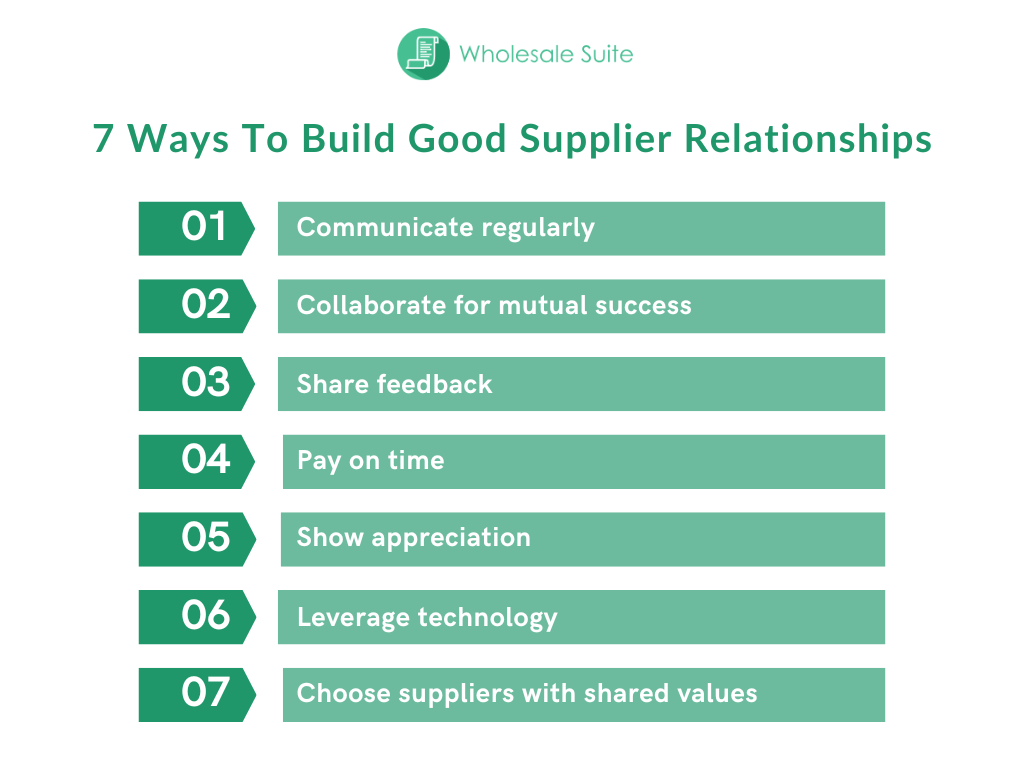
Supplier relationship management is crucial for wholesale business owners. After all, your suppliers provide the products and materials that keep your business running. By maintaining a good supplier relationship, you create a more reliable supply chain, get better deals, and experience smoother operations.
In this article, we’ll dive into actionable and practical ways you can foster better relationships with your suppliers. If you’re ready to learn, then let’s dive right in!
Why Is It Important To Build A Good Supplier Relationship?
The number of supply chain disruptions is on the rise as the global market becomes more complex and unforeseen events become more frequent. According to industry insights, 38.8% of US small business owners experienced supply chain delays when the global pandemic hit. In an increasingly volatile and unpredictable market, having a good supplier relationship can be a key advantage. Let’s review some of the key reasons why:
- Reliability: Maintaining good relationships with suppliers creates a more reliable supply chain for your wholesale business. When suppliers trust and value your business, they are more likely to prioritize your orders and meet your expectations.
- Better pricing: Good supplier relationships also allow you to enjoy better deals and more favorable terms. When you communicate with your suppliers and pay on time, they are more likely to offer discounts, flexible payment terms, and other perks.
- Support: When the unexpected arises, such as demand fluctuations or supply chain disruptions, having strong supplier relationships may provide the flexibility your business needs. For example, suppliers who value your partnership are more likely to accommodate urgent requests and orders.
- Innovation: Better supplier relationships can also open more opportunities for growth and innovation. By communicating and working closely with your suppliers, you can identify opportunities to streamline processes or develop new products.
7 Ways To Build A Good Supplier Relationship In Wholesale
Now that we understand why it’s crucial to build a good supplier relationship, let’s move on to the actionable steps you can take to make it happen!
1. Communicate regularly
Communication is key to building a strong relationship. The same principle applies to supplier relationships. Effective, regular communication allows both parties to check in, address concerns, and ensure expectations are met. Here are some key tips:
- Create a check-in schedule: Conduct regular check-ins to discuss ongoing orders, future plans, or changes in demand to keep your suppliers informed. These check-ins can be scheduled monthly or quarterly, depending on the nature of your business and the volume of orders.
- Document everything: Make sure to keep a record of any changes in agreements or commitments. This will help you keep track of what has been agreed upon and prevent potential disputes in the future.
- Leverage different communication channels: Since it’s not always possible to meet face to face with remote working being the norm, you can leverage different types of communication channels to keep in touch with your suppliers. For instance, you can use video conferencing software to conduct longer meetings or send regular emails for quick updates.
Regular communication not only contributes to building a good supplier relationship–it also helps you identify opportunities to improve processes and collaborate, which brings us to the next tip!
2. Collaborate for mutual success
To truly build a good supplier relationship, it’s important to look beyond what you can gain as a customer. Instead, identify opportunities on how you and your supplier can grow and succeed together. Creating a collaborative partnership where mutual success is the goal can foster trust and set the foundation for long-term growth. There are several ways to achieve this.
One great example is joint problem-solving. When issues arise, such as delays or quality concerns, approach it with curiosity instead of placing blame. Work with your suppliers to identify root causes and seek opportunities to improve systems to prevent similar issues in the future.
During discussions, demonstrate your commitment to the partnership by developing long-term strategies that align with both your business goals. For instance, you can introduce supply chain optimization technologies that can help streamline processes or reduce costs.
3. Share feedback
You are both a customer and a business partner for your suppliers. Therefore, your feedback is invaluable in helping them improve their products and services. Don’t be afraid to share your experience with your suppliers. Constructive feedback helps both parties understand each other’s expectations, which is crucial in building a good supplier relationship.

Prompt, honest feedback also prevents issues from escalating. By letting your suppliers know when issues arise, you give them the opportunity to resolve these concerns before they become bigger challenges.
4. Pay on time
As a business owner yourself, you probably can pinpoint who your best customers are. They are the ones who pay on time, honor their commitments, and share invaluable feedback. The same goes for maintaining a good supplier relationship. As their customer, you can foster trust by paying on time and honoring agreed-upon terms.
This should begin from the outset—establish payment terms, schedules, and methods. Having a contract that outlines these terms can provide a clear reference for both parties. If your cash flow permits, take advantage of early payment discounts that are offered by suppliers. Aside from saving you money, this can strengthen your reputation as a reliable business partner.
5. Show appreciation
Sharing your concerns and giving constructive feedback is important, but so is recognizing your suppliers’ efforts and appreciating their contributions. Give positive feedback when suppliers perform well and let them know how much you value their partnership.
Most of all, reward good service with loyalty. While it can be tempting to seek out the lowest prices, having a reliable supplier who consistently delivers and meets your needs can be far more valuable in the long run.
6. Leverage technology
When it comes to building a good supplier relationship, using technology to your advantage can amplify your efforts. Modern technologies allow you to streamline communication, improve your overall processes, and gain important insights that are instrumental in forging better business partnerships. Let’s walk through some key tools you can implement to accomplish this:
- Inventory management software: These tools allow you to accurately track stock levels, predict demand, and manage reorder points–all information crucial for your suppliers. Having this information accessible can help you make more informed purchase decisions and help your suppliers plan their deliveries accordingly.
- Efficient ordering: Improving the ordering process in your business not only enhances the customer experience, it also streamlines the overall procurement process. With all-in-one tools like Wholesale Suite, you can create a seamless ordering experience for wholesale customers. This reduces errors in the ordering process, giving you and your suppliers order information to ensure efficient and timely order fulfillment.

- Communication tools: Video conferencing platforms and project management software can make sharing information and collaboration easier for you and your business partners.
7. Choose suppliers who share your values
What are the values that matter most to your wholesale business? Whether it’s a commitment to sustainability or upholding stellar customer service, make sure to consider them in the process of finding the right suppliers. Cost is a crucial consideration, but it is not everything. When looking for suppliers that are the right fit, evaluate their alignment with your core values.
If you’re currently in the process of finding new suppliers, conduct thorough research to identify businesses whose values align with yours. Vet potential partners through interviews and look for evidence of their commitment to these values. For example, you may want to learn more about their culture, corporate social responsibility initiatives, or sustainability practices.
Remember, your suppliers are not just vendors—they are also business partners who play a crucial role in your long-term success. By choosing the right partners, you can create a more resilient supply chain that can adapt to challenges and scale as your business grows.
Conclusion
Maintaining a good supplier relationship is crucial for wholesalers. By choosing the right business partners and fostering trust, you can create a more resilient supply chain and ensure the success of your business in an ever-evolving marketplace. In this article, we walked you through seven actionable strategies to help you enhance supplier relationships.
To summarize, let’s review them below:
- Communicate regularly
- Collaborate for mutual success
- Share feedback
- Pay on time
- Show appreciation
- Leverage technology
- Choose suppliers with shared values
Leveraging tools and technology can make this a lot easier. WooCommerce wholesalers, for instance, can use all-in-one solutions like Wholesale Suite to enhance the efficiency of their operations. With features like wholesale pricing management and bulk ordering, it’s a lot easier to manage wholesale orders and determine your inventory needs, ensuring you provide the right data to suppliers for timely order fulfillment.
We hope this article helped you out! Do you have any questions? Let us know in the comments section below.





